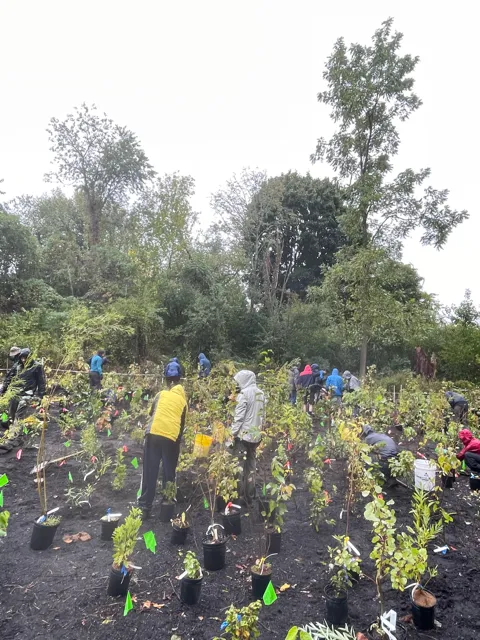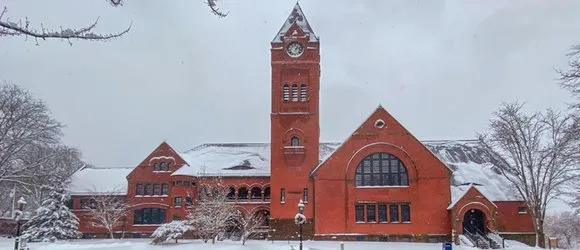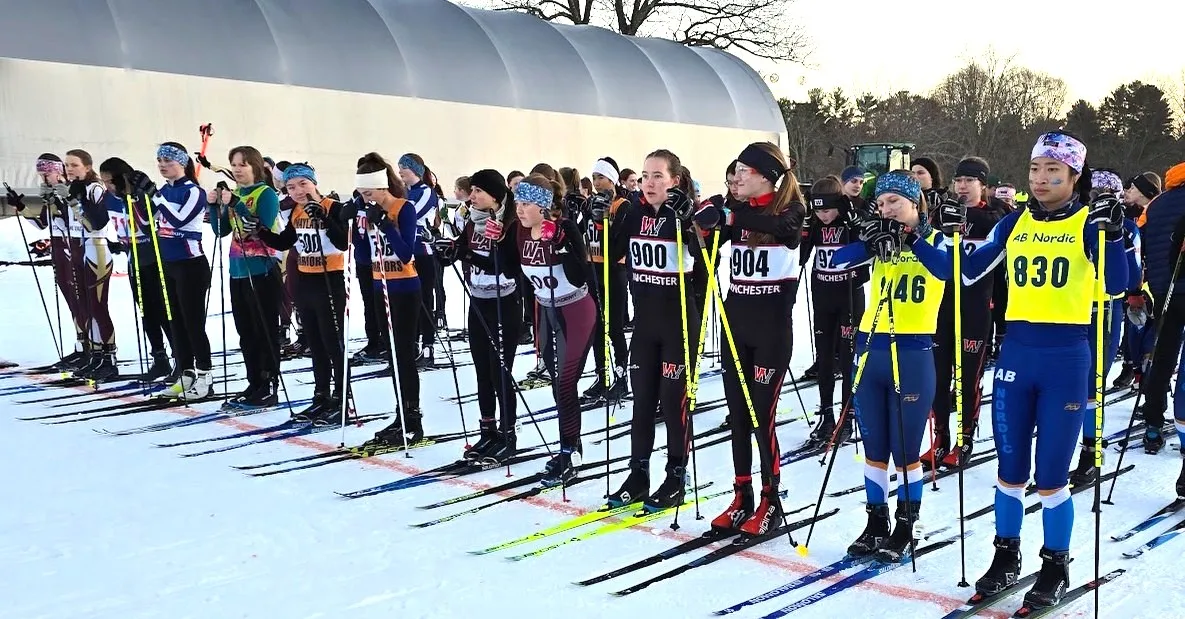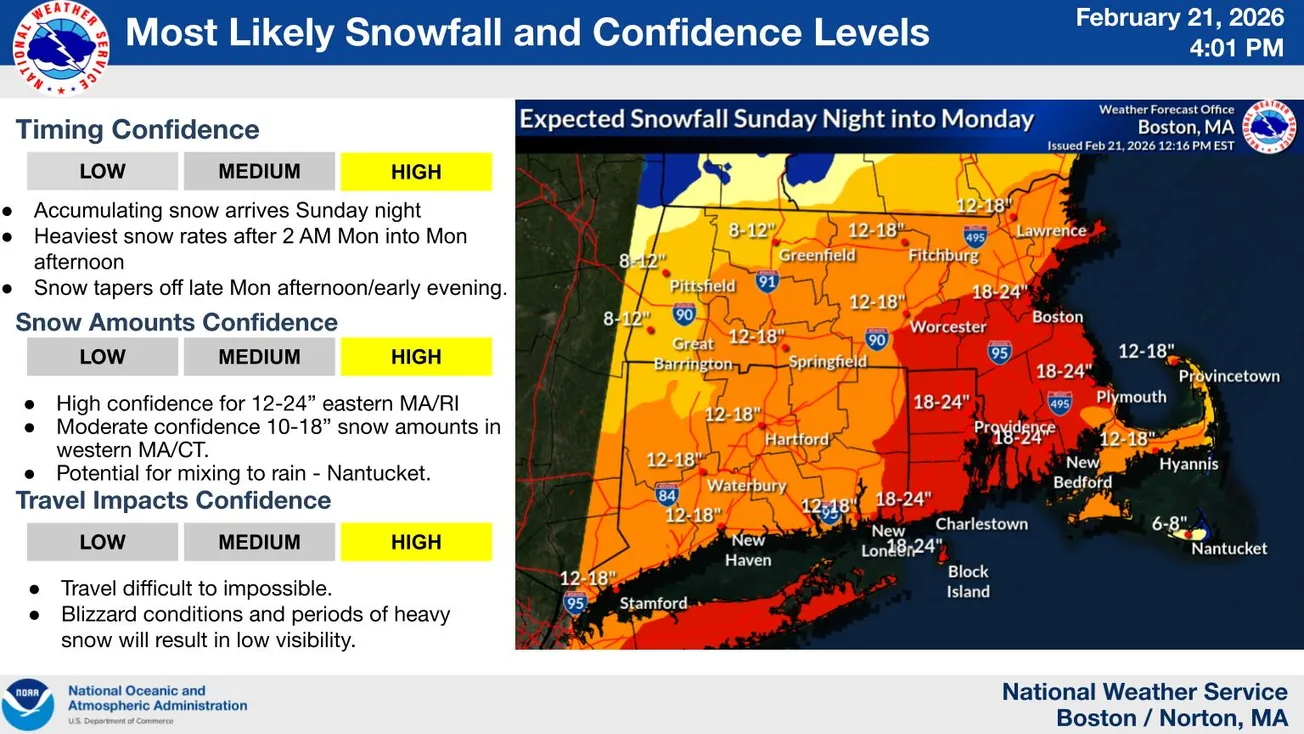Table of Contents
Despite the rain over the weekend, Winchester residents from all walks of life headed up to Wright-Locke Farm to donate their time to plant for the Fast Forest.
The WIN Fast Forest is a partnership between the farm and Grow Local for the Planet to restore “low habitat value agricultural wetlands by the farm’s pond to a high habitat value mature forest,” according to the organization’s website.
The goal is to plant about 1,400 native plants in a forest to cover 5,000 square feet via the “Miyawaki method,” which accelerates tree growth to one-third less time than usual, or in this case 30 years instead of 150 years.
On Sunday, dozens of volunteers set about the planting process. The Sept. 22 event was to take place the day before, but with excessive rain, was postponed to the next day.
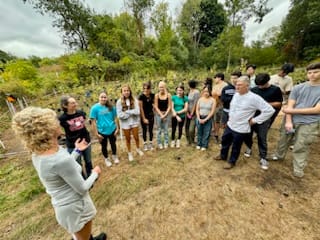
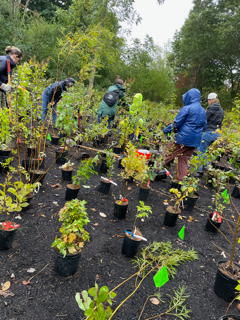

Winchester students, left, and other volunteers come out to ready the soil for the fast forest at Wright-Locke Farm, left, and plant on Sept. 22, despite rainy weather. COURTESY PHOTOS/PRASSEDE CALABI
Organizers were excited by the turnout.
“We did it!” said Prassede Calabi in a recent email to Winchester News. “Yesterday, we planted most of our WIN Fast Forest plants, about 860 plants in under four hours. It was crazy great!”
Calabi called the day “incandescent” with the “soft rain, glowy light, lotta plants of many greens and amazing people. Small children in yellow Christopher Robin slickers, slickers with roses, T-shirts, no slickers.”
She added it seems as if everyone from Winchester came out to help, whether young kids, parents or grandparents. Eagle Scouts, as well as local teachers and ministers gathered to help, she said, with people coming from as close as around the corner or as far as an hour’s drive away.
“Folks who planted fast and slow, for 10 minutes or for five hours,” Calabi said, of the volunteer corps. “[There were] experienced planters, and some who’d never held a shovel. Everyone digging, carrying, patting the earth.”
Despite the mud — “lotta mud,” Calabi said — volunteers were in good spirits. She added there were canopies in place against the rain for volunteers, as well as snacks, sandwiches and hot coffee.
“It was, by every measure, a party,” she said.
The ‘Miyawaki’ method
The Miyawaki planting method was named after Dr. Akira Miyawaki, a Japanese botanist and an expert in plant ecology who developed a technique to create dense forest with native plants.
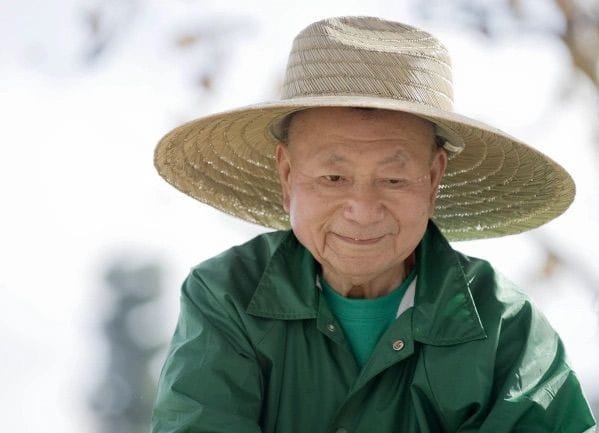
In the 1970s, Miyawaki advocated for the restoration of natural forests after observing trees that grew around temples, shrines and cemeteries in Japan were surrounded by native species. Using seeds from native trees on degraded soil, Miyawaki was able to restore forests on more than 1,300 sites around Japan.
Since then, Miyawaki has implemented his method worldwide, receiving the Blue Planet Prize in 2006. The prize, created in 1992 by the Asahi Glass Foundation, recognizes “outstanding efforts in scientific research or applications of science that contribute to solving global environmental problems”
According to the SUGi Project, a non-profit organization working to create pocket forests around the world, the Miyawaki method consists of four steps: identifying native plants best suited to the area, preparing the soil, planting saplings and mulching the forest.
“The mulch protects the soil and retains moisture,” the SUGi Project website states. “Species such as earthworms, beetles and other insects feed from the top-down, building soil fertility by pulling the mulch into the ground for it to be broken down by microbes.”
The secret is that forests only need to be maintained for the first three years. Afterwards, growers can stop weeding and let the forest grow naturally.
SUGi has planted 217 forests in 53 cities and towns across the world, including Sao Paulo, Brazil; London, England; Aurangabad, India; and Seattle, Washington. Closer to Winchester, both Cambridge and Somerville have planted their own fast forests.

Cambridge planted 1,400 trees in 2021 at Danehy Park, a 50-acre recreational area built on the site of a former landfill, which was closed in the early 1970s. In 2023, Cambridge reported the survival rate of its trees was 95%.
This is the first of three fast forests being planted in Cambridge, with a second planted in Greene-Rose Heritage Park in 2022 and a third on private property in 2023.
Somerville planted 350 trees at its high school facility, which is adjacent to both Somerville City Hall and the main campus of the public library, in October 2023. A year on, the forest is starting to grow.
In May 2024, Worcester planted two forests, one in the parking lot of the local high school and another on private property that borders a low-income housing complex. Brookline is also in the process of planting a fast forest.
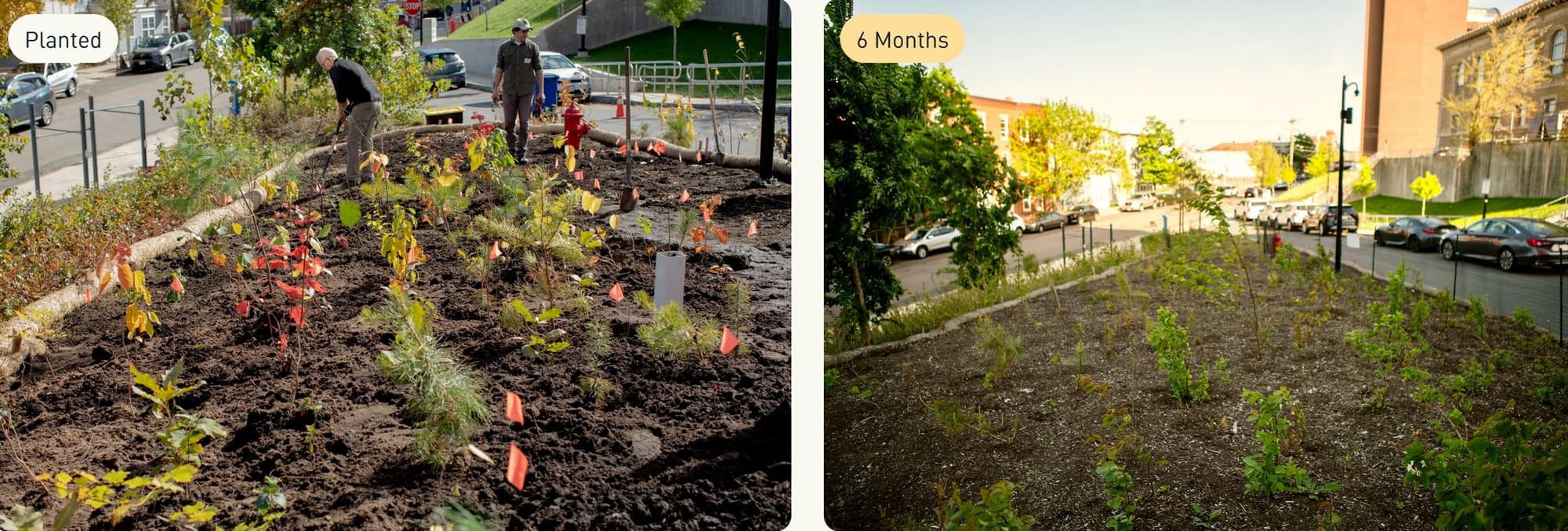
Where’s Winchester in the process?
The Sept. 22 event is the third step in the Miyawaki method and it’s exciting to organizers.
“You know the expression build it and they will come? It’s part of Miyawaki forest thinking: build habitat and critters will come,” Calabi said. “That happened at our FF before the plants were even in the ground. Wednesday evening, we’d hand-watered all the pots. Thursday, [Winchester High School] AP environmental science students came onsite to lay out the plants for Saturday. And on one pot, we found a little frog soaking in the moisture. After 29 days of no rain and dusty soil, it had found a wet spot. We were thrilled and awed.”
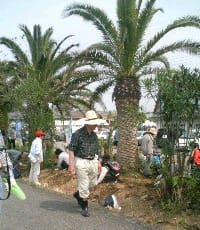
Calabi and the rest of the Fast Forest organizers are hoping residents attend an upcoming potluck dinner at Wright-Locke Farm on Sunday, Oct. 6 to not only celebrate the project’s success, but see the plants for themselves.
Everyone is invited to Wright-Locke Farm, 82 Ridge St., from 4:30-7 pm.
And, anyone who wants to become involved in the project can still do so by volunteering to plant the final 200 or so plants on Oct. 5 or join the watering crew for an event in mid-November.
Volunteers are also being sought to mulch and join in further weeding and watering come summer 2025.
But if you’re the type who wants to help, but doesn’t really want to weed or water, organizers are also looking for monetary donations.
Calabi said the project has had two large, unexpected costs totaling about $2,600.
“We don’t have $2,600,” she said, explaining that all the rain in March kept volunteers from planting in April. “[The rain] started sliding our precious compost downhill off the site. So, we had to buy silt sox to keep it in place and keep the farm pond clean. The sox are those big black snaky things heaped at the base of the site. We won’t need them again because the plants stabilize the soil.”
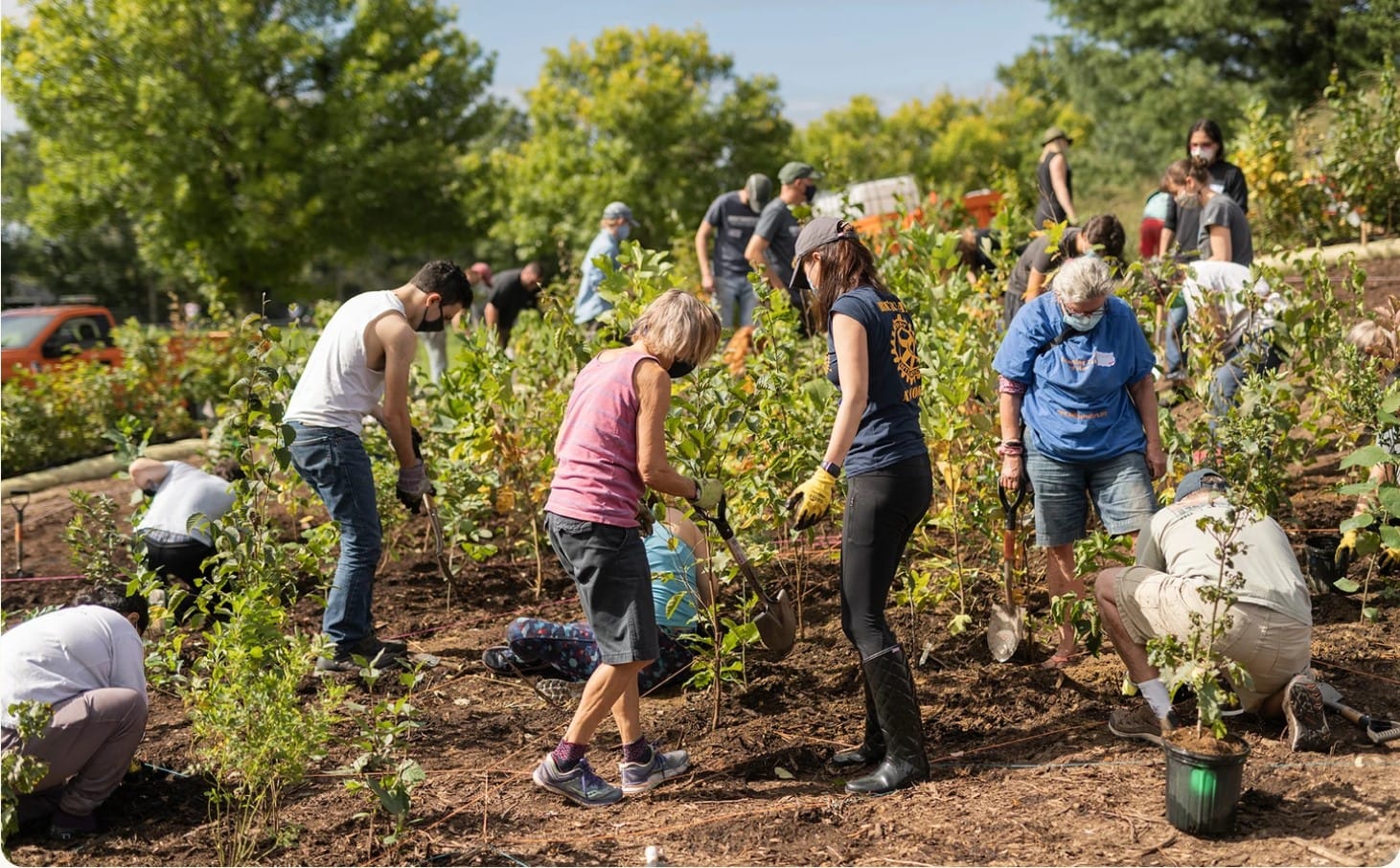
Although organizers had planned to put up a small electric fence to keep out animals like rabbits and woodchucks, crops at Wright-Locke had noticeable damage from deer for the first time. The farm, she said, had to upgrade to a “costly” fence to keep out larger animals.
She said right now, Wright-Locke could use some help.
“Please. Any amount helps,” she said. “You may also donate in someone’s name. Those name(s) go onto our permanent donor list, along with your name (if you wish).”
Suggested donation is $25 per name. Children may add names for whatever amount they can contribute. All donations are tax deductible.
To contribute, click here.

